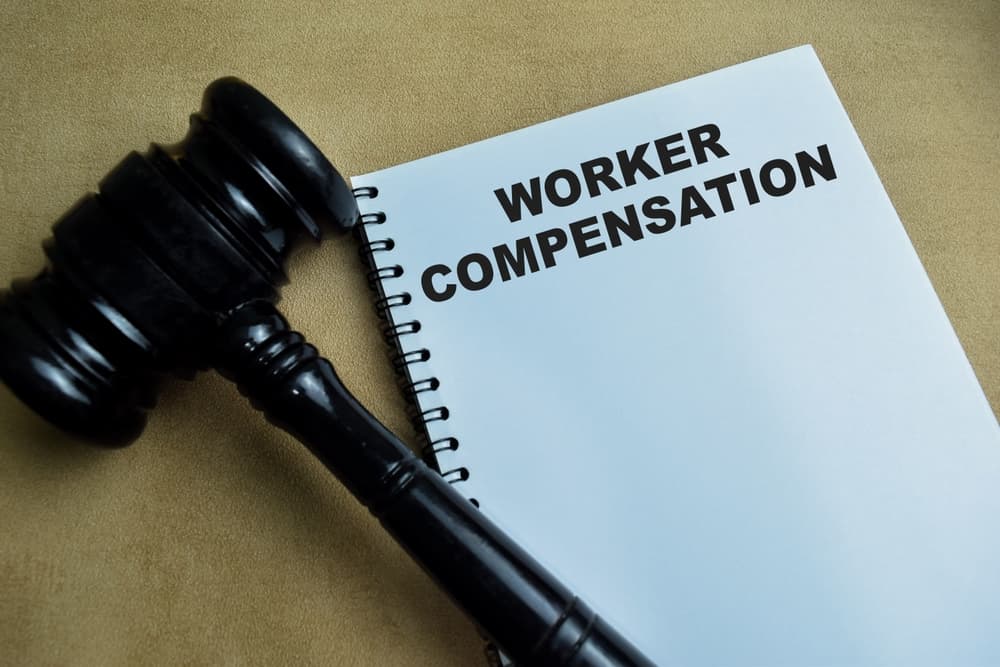Stephen Hasner | Workers' Compensation | January 9, 2025

If you’ve filed a workers’ compensation claim, there’s a good chance you’ll have to give a deposition. A deposition is an official process where you answer questions under oath about your injury, work history, and other relevant topics. It’s a critical part of your case, and making mistakes during a deposition can harm your chances of receiving the benefits you deserve.
By understanding some of the most common errors people make, you can better prepare yourself and protect your claim. Working with a workers’ compensation lawyer is essential for successfully completing the deposition process.
Not Preparing Adequately for the Deposition
Walking into a deposition unprepared is one of the biggest mistakes you can make. The opposing attorney’s questions are designed to challenge your credibility or uncover inconsistencies in your story. If you’re caught off guard, you might stumble or provide answers that don’t align with the facts of your case.
Adequate preparation goes beyond simply reviewing your claim. You need to think carefully about the timeline of your injury, the medical treatment you’ve received, and how your injury has impacted your daily activities. Be ready to discuss the specific tasks you could and couldn’t perform before and after your injury.
A workers’ compensation lawyer can help you rehearse likely questions and practice giving clear, concise answers. This preparation ensures you’re ready to present your case confidently and consistently.
Talking Too Much
Many people feel the need to elaborate on their answers during a deposition. They might provide extra details, give opinions, or volunteer information that wasn’t requested. This natural tendency to over-explain can backfire. Opposing counsel may twist your words or use them to find contradictions in your testimony.
To avoid this, stick strictly to the question being asked. Answer as honestly and briefly as possible without offering unnecessary details. A simple “yes” or “no” is often sufficient for yes-or-no questions. Don’t feel pressured to fill the silence or expand on your answer. A workers’ compensation attorney will remind you that less is more regarding depositions. By staying concise, you minimize the risk of providing information that could be misconstrued.
Guessing or Speculating
If you don’t know the answer to a question, it’s perfectly acceptable to say, “I don’t know” or “I don’t remember.” Guessing or speculating can significantly damage your credibility. An incorrect answer may allow opposing counsel to argue that your testimony is unreliable, weakening your case.
When you’re unsure, admitting it is far better than trying to provide an answer that might not be accurate. This honesty protects you from unnecessary complications down the road. A skilled workers’ compensation attorney will emphasize the importance of being truthful and remind you that admitting uncertainty isn’t a weakness. Instead, it demonstrates that your responses are thoughtful and measured, which can enhance your credibility.
Downplaying Your Injury

Many workers don’t want to come across as overly dramatic when describing their injuries. They downplay their pain or minimize the injury’s impact on their lives. This mistake can weaken your claim. If you don’t make it clear how serious your injury is, the insurance company may argue that you don’t need as much compensation as you’re requesting.
You don’t need to exaggerate, but you should be truthful about the severity of your injury. If the pain prevents you from standing for long periods or limits your ability to perform daily tasks, say so. Your workers’ compensation lawyer will guide you in describing your injury in a way that accurately reflects its impact.
Being Defensive or Argumentative
Depositions can feel stressful, especially when the opposing attorney’s questions seem unfair or accusatory. However, reacting defensively or becoming argumentative during a deposition can harm your case. Losing your temper might make you appear less credible or give the impression that you’re hiding something. These reactions could create doubts about your testimony and weaken your position.
The key is to stay calm and composed, even when faced with uncomfortable questions. Take a deep breath before answering if a question feels intrusive or accusatory. A moment of pause can help you collect your thoughts and respond clearly.
Remember that your attorney is there to support you, and they’ll address any improper or overly aggressive questioning. If you need a moment to think, asking for a brief pause before continuing your testimony is okay. Staying composed will demonstrate that you’re confident in your statements and have nothing to conceal.
Forgetting to Review Your Medical Records
Your medical records are a cornerstone of your workers’ compensation case. During the deposition, you’ll likely face questions about the treatment you’ve received, your diagnoses, and your recovery process. If your answers don’t align with your medical records, it could raise doubts about your credibility. Inconsistencies, even unintentional ones, might make the opposing counsel question the accuracy of your testimony.
To avoid this, review your medical records thoroughly before the deposition. Go over the timeline of your treatment, the diagnoses you’ve been given, and any limitations your doctors have noted. Working with your lawyer to understand these details ensures you can answer questions accurately and confidently.
A consistent account of your medical history strengthens your case and minimizes the risk of discrepancies. Preparation is essential to demonstrate that your testimony aligns with the documented evidence.
Misrepresenting Your Work History
Misrepresenting your work history during a deposition is a mistake that can seriously harm your workers’ compensation case. Some people might exaggerate their job duties or downplay pre-existing conditions to make their claims seem stronger. However, the opposing attorney will likely have access to your employment records and may catch inconsistencies, which can undermine your credibility and your case.
Be honest and straightforward when discussing your work history. Accurately describe your responsibilities, any past injuries, and accommodations you’ve received in the workplace. It’s also crucial to acknowledge pre-existing conditions if they’re relevant. Trying to conceal or distort facts can backfire when opposing counsel uncovers the truth.
Your workers’ compensation lawyer can help you prepare for questions about your work history. By reviewing your records together, you can provide truthful answers without inadvertently hurting your case. Transparency is always the best approach. Being upfront about your work history shows that you’re trustworthy and focused on accurately presenting your situation.
Failing to Understand the Purpose of a Deposition
Some people approach depositions as informal conversations or opportunities to argue their case. This misunderstanding can lead to errors that weaken your claim. A deposition isn’t a time to tell your side of the story in detail or to convince anyone of your position. It’s a fact-finding process where the opposing attorney gathers information that might be used later in court.
By keeping this purpose in mind, you can stay focused and avoid saying anything unnecessary. Your attorney will ensure you understand the role of a deposition and what’s expected of you.
Misinterpreting Questions
Deposition questions can sometimes be confusing or deliberately tricky. If you don’t fully understand a question, you might provide an answer that doesn’t accurately reflect the facts of your case. Opposing counsel could then use this response to create doubt about your credibility.
Don’t hesitate to ask for clarification if a question isn’t clear. Saying, “Can you rephrase that?” or “I don’t understand the question” is better than guessing or giving an inaccurate answer. Your lawyer will remind you that it’s important to fully understand each question before responding.
Ignoring Non-Verbal Communication

Your words aren’t the only thing under scrutiny during a deposition. Opposing counsel will also pay attention to your non-verbal communication, including your body language, facial expressions, and tone of voice. Rolling your eyes, crossing your arms, or using a sarcastic tone might reflect poorly on you.
Maintain neutral and respectful body language throughout the deposition. Sit up straight, make eye contact, and avoid fidgeting. A workers’ compensation lawyer can provide guidance on how to present yourself effectively.
Sharing Irrelevant Personal Information
It’s natural to want to build rapport during a conversation, but sharing irrelevant personal information during a deposition can complicate your case. For example, discussing hobbies, side jobs, or unrelated medical issues might give the opposing attorney more ammunition to challenge your claim.
Keep your answers focused on the questions being asked. If you’re unsure whether a topic is relevant, your lawyer can advise you on handling it.
Forgetting to Take Breaks
Depositions can be long and mentally draining. The pressure to stay focused while answering questions can take a toll, especially if you don’t allow yourself time to rest. Trying to push through without breaks can lead to fatigue, making it easier to slip up or misstate key facts. Many people don’t realize they can request breaks during a deposition.
If you’re feeling stressed or mentally exhausted, let your attorney know. Even a short pause can help you regroup, collect your thoughts, and approach the next set of questions with clarity. Depositions are not a race, and taking care of your mental stamina is essential to presenting your case effectively.
Overlooking the Importance of Credibility
Credibility plays a central role in the outcome of a workers’ compensation case. If the opposing attorney finds inconsistencies or inaccuracies in your deposition testimony, it could cast doubt on your entire claim. Even small discrepancies can be used to argue that your version of events isn’t reliable, which can severely harm your chances of receiving fair compensation.
To maintain credibility, it’s crucial to stay consistent in your answers. Avoid exaggerating or minimizing details, even if you think it might help your case.
Honesty is key, and a workers’ compensation lawyer will help you prepare to present the facts accurately and confidently. They’ll work with you to anticipate questions and ensure your testimony aligns with the evidence in your case. By being truthful and consistent, you’ll strengthen your position and protect your claim.
Underestimating the Opposing Attorney
This mistake can lead to significant problems during your deposition. It’s easy to assume their goal is simply gathering information, but their strategy often involves more than fact-finding. Opposing counsel may use leading or confusing questions to trap you into providing contradictory answers. They might attempt to catch you off guard or provoke you into saying something that could weaken your case.
A skilled workers’ compensation attorney will prepare you for these tactics and teach you how to handle difficult questions. With their guidance, you’ll learn to recognize traps and respond in a way that avoids missteps.
Again, preparation is key to staying one step ahead of the opposing attorney and ensuring your testimony remains consistent and credible. By understanding their strategies and having a plan, you can confidently handle the deposition process and protect your claim.
Rushing Through Answers
When you’re nervous, it’s natural to feel pressured to answer deposition questions quickly. However, rushing through your answers can lead to mistakes or incomplete responses that may harm your case. Nervous energy might push you to speak without fully considering the question, which increases the risk of providing inaccurate or unclear information.
Take your time before answering each question. Even if the silence feels awkward, pausing briefly to gather your thoughts is better. A moment of reflection can help you provide accurate and concise answers, reducing the chance of errors. Your attorney will remind you that it’s perfectly acceptable to take a few extra seconds to ensure your response is thoughtful and precise. Slowing down demonstrates confidence and helps protect the integrity of your testimony.
Not Consulting Your Attorney
Some people believe they can handle a deposition without the help of an attorney. This assumption can lead to serious issues. Depositions are complex, high-stakes proceedings where the opposing attorney may use strategies to trip you up or undermine your credibility. Without legal guidance, you might not fully understand your rights or recognize potential traps in the questioning.
Let a Workers’ Compensation Lawyer Help Prepare You for Success

A deposition is critical in your workers’ compensation case, and avoiding common mistakes can make all the difference. By preparing thoroughly, answering carefully, and working with a workers’ compensation lawyer, you can protect your claim and increase your chances of a favorable outcome.
Stay focused, be honest, and rely on Hasner Law’s guidance to confidently get through your deposition. Schedule a consultation with a lawyer to learn more.


